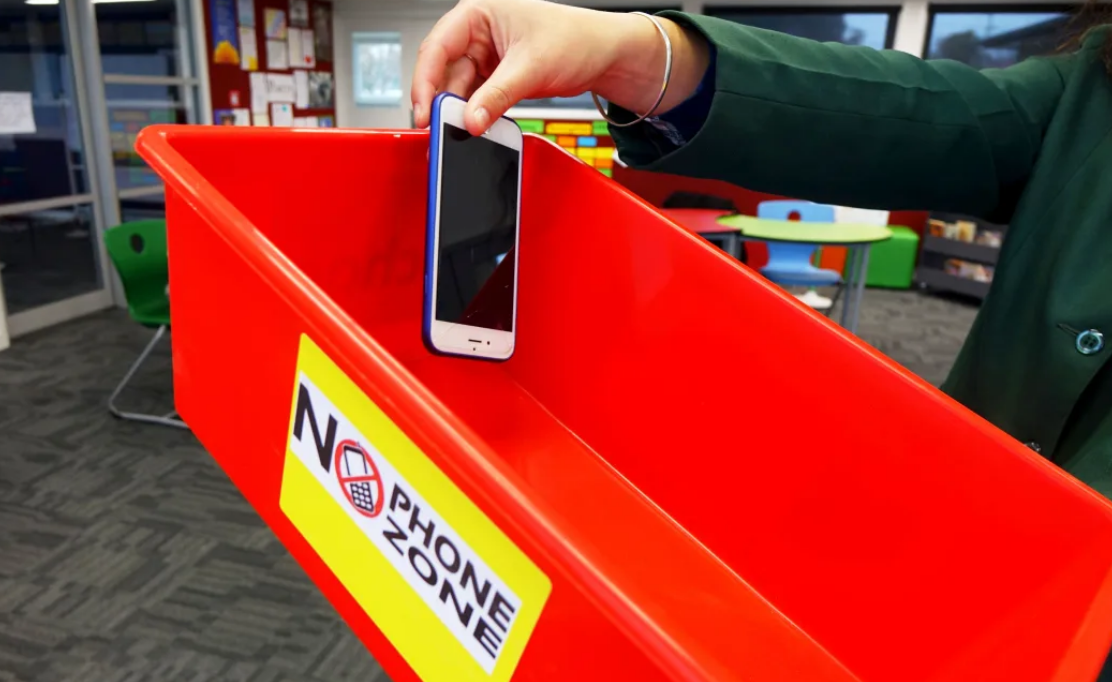
Monday's first day of term two sees the cellphone prohibition policy come into effect throughout the country, mandating schools to ensure pupils don't use or access to a phone during class time, lunchtime and breaks.
There are some exemptions for health, learning support or special circumstances.
National announced the policy two months before the election in order to "help students focus and improve their academic outcomes".
During the announcement in December last year, Minister of Education Erica Stanford said the ban would apply from term two, at which point all schools would be required to have a cellphone policy in place.
But Flo Galvin, a year nine pupil at Wellington High School, has raised doubts over how effective the regulations would ultimately be.
Flo (13) said while phones were a "problem issue" for teenagers, a blanket ban at schools was not the answer.
"I'm definitely addicted to my phone," she said. "Phones in schools, and phones generally, is a pretty big problem for teenagers, but I just don't know whether the ban and how they're trying to do it is going to be effective.
"From experiences of going to a school where phones were banned and people are still on phones and using them, it just feels that nothing is actually going to happen."
She said she observed students at her last school, which had a phone ban in place, sidestep the rules.
"From what I knew, at least in my classes and people I knew, not many people followed the rule.
"I've been talking about this to friends. [The policy] isn't actually going to mean that people aren't on their phones, it just means they'll be sneakier about it and won't be caught.
"I don't know if it'll be harder to regulate, but I just don't think it will make a difference."
Wellington High School outlined its reading on the policy last month, highlighting the "good educational and organisational uses" of cellphones at school.
"We want to implement a policy that acknowledges those purposes.
"If teachers request that students do not use phones in class, we expect our students to comply with that request, except where an exemption is in place.
"In general, students will keep phones, and other small digital devices, silenced and out of sight when they are in class."
Flo said although prohibiting phones during class time was "totally reasonable", she would prefer to have the freedom to use it during lunch breaks.
"During break there's not much of a reason for it and being able to text friends and figuring out where to meet up during lunch is nice, especially in a really big school."
However some leaders in the sector believe most students had bought into the new regulations.
Secondary Principals' Association of New Zealand (SPANZ) president and Papatoetoe High School principal Vaughan Couillaut said many schools began phasing in the rules during term one.
"I have to say that students have been extremely compliant in the first part of term one and during the backend when we stopped the 'education' and moved into the 'implementation'.
"People have seemed to have bought into it."
At Papatoetoe High School, about five phone confiscations had occurred on an average day during term one, Couillaut said.
"Not necessarily the same students, but those students are generally compliant."
Couillaut said schools need to figure out gathering procedures, although most schools, including Papatoetoe, had opted for the "leave it in your bag" approach.
"For a school of nearly 1800, I simply can't gather them all at the beginning of the day without eating into curriculum time."
Another matter for school leaders throughout was around the care of students' devices, often valued at $1000-plus.
"It'll get a bit dark and misty if a device gets lost or broken while it's confiscated and each school will negotiate that as it happens," Couillaut said.
A pupil of Christchurch's Burnside High School that RNZ spoke to said the policy was a good move as it removed "distractions from the class".












